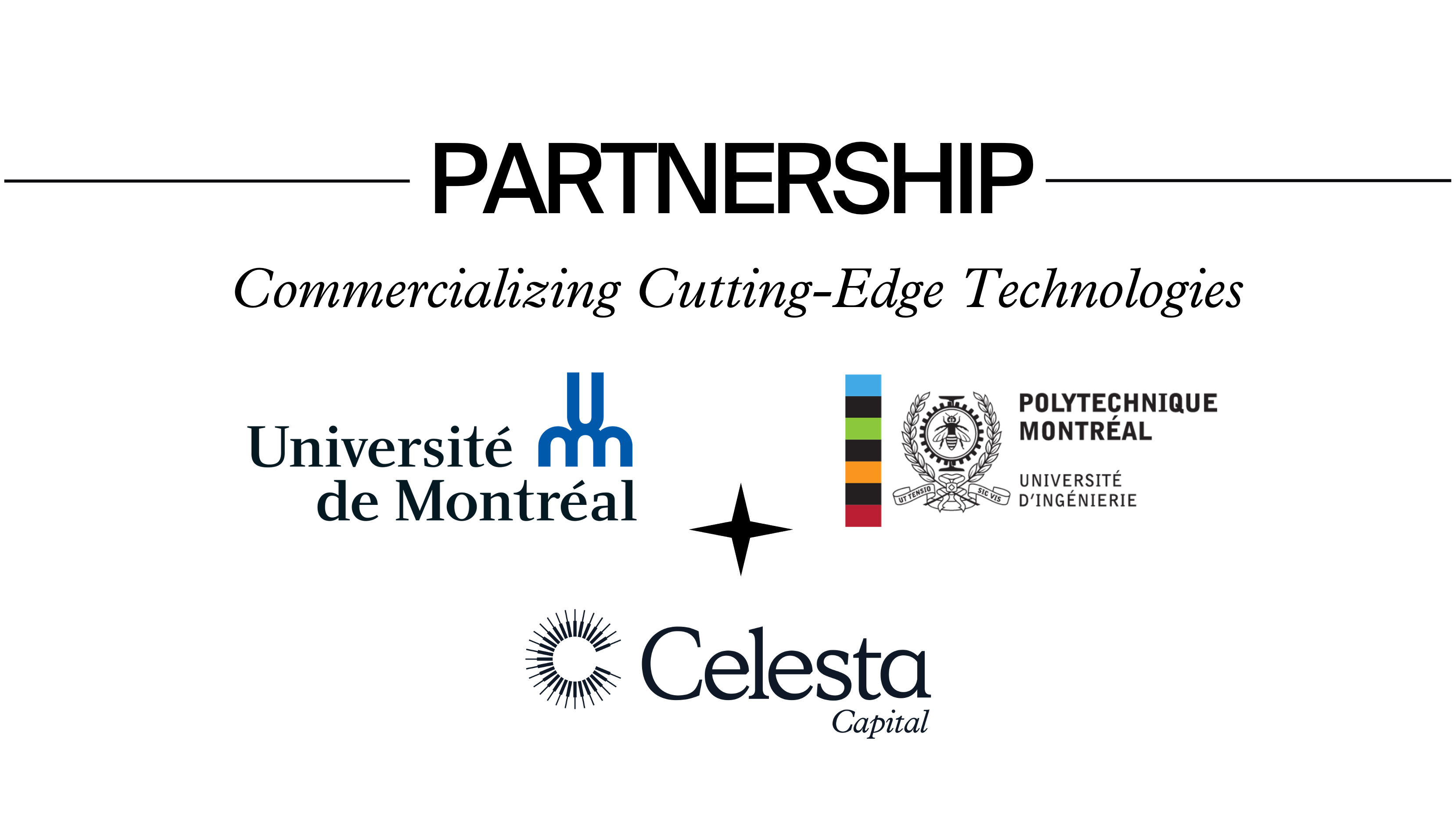Q&A With Celesta Capital Advisor Shaun Holt
Q&A With Celesta Capital Advisor Shaun Holt
Shaun Holt is an Advisor with Celesta Capital. He brings more than 20 years of experience in operations, commercial, and finance leadership roles across a broad range of industries, including software and various areas within life sciences. Shaun began his career at web development software company Macromedia (acquired by Adobe), followed by software security company Websense (acquired by private equity). In 2007, he transitioned into the life sciences sector, joining Illumina, the global leader in DNA sequencing technology, where he served in a series of strategic finance leadership roles over 7+ years. He next joined startup Berkeley Lights as their first CFO, leading them through 5+years of rapid growth and a successful IPO. In addition to his role as a Celesta Advisor, Shaun serves as COO at Atonarp, a Celesta portfolio company and leading developer of next-generation molecular sensing technologies targeting the healthcare and industrial sectors.
------

Shaun Holt is an Advisor with Celesta Capital. He brings more than 20 years of experience in operations, commercial, and finance leadership roles across a broad range of industries, including software and various areas within life sciences. Shaun began his career at web development software company Macromedia (acquired by Adobe), followed by software security company Websense (acquired by private equity). In 2007, he transitioned into the life sciences sector, joining Illumina, the global leader in DNA sequencing technology, where he served in a series of strategic finance leadership roles over 7+ years. He next joined startup Berkeley Lights as their first CFO, leading them through 5+years of rapid growth and a successful IPO. In addition to his role as a Celesta Advisor, Shaun serves as COO at Atonarp, a Celesta portfolio company and leading developer of next-generation molecular sensing technologies targeting the healthcare and industrial sectors.
------
Which professional achievements are you most proud of to date?
For me it often comes back to playing a critical part in exciting growth phases at companies. I joined Illumina before they became a DNA sequencing powerhouse and I had the privilege of helping the company bring that technology to market, along with driving commercial and finance scale-up initiatives, ultimately seeing growth from $5-10 billion market cap to over $60 billion. An exciting part of my role there was helping to take technologies and capabilities the team had developed and spinning them out into vertical markets, including Grail Bio for example.
Of course, helping to lead Berkeley Lights through its IPO was another highlight. I joined when we had only 40 or 50 employees and no finance team within the company.

One thing I pride myself on is being largely self-taught from real-world experience. From very early on, I was taught the value of hard work from my parents, who largely carried ‘blue collar’ jobs to support our family. I put myself through college working full time during nights and weekends. I have an undergraduate degree from a California State University, specifically, a BS in Business Administration and Finance, and that is the total of my formal education.
So, I really had to push myself and work incredibly hard to earn my way up from a junior-level cost accountant role out of college to now serving in an Advisor and COO role, and actively participating on Boards. I truly believe that boots-on-the-ground experience is immensely valuable, and I’ve had the good fortune to be exposed to various operational functions, diverse industries, and very innovative technologies from early-stage private and multi-billion-dollar public companies.
Not to mention the incredible leaders and mentors I've had along the way that have positively influenced my professional and personal development…too many of which to name individually here!
What does your role as an investment Advisor with Celesta entail?
I decided to join Celesta in 2021 because of my strong relationships with the founding partners, Michael, Nic, and Sriram. I was very impressed with their collective track record and the knowledge they bring to building companies. I also love the energy and passion they bring to what they do, and I wanted to be a part of that.
So far, the work is incredibly interesting, and I am exposed to many different technologies, companies, and founding leadership teams. My role includes evaluating investment opportunities from both the operations and product lens, identifying interesting platforms or technologies that we believe Celesta can help to scale. I also bring opportunities from my network to Celesta to see if there is a potential fit with our investment thesis. I help where I can across our current portfolio companies as well.
It has been a lot of fun working alongside the team at Celesta and meeting interesting leaders from the biotech space who are developing innovative technologies with huge impact potential. The opportunity to bring my knowledge and experience to the table in an advisory role is very rewarding.
"The best VC partner is able to really work closely with a portfolio company and support them in tangible ways to achieve their goals – above and beyond just capital infusion alone."
Why do you believe bio convergence – the merging of biology with engineering and software – is such a compelling investment area right now?
It is a sector that is rich with innovation, and one with massive growth potential when the technology finds a product-market fit and is commercialized successfully. New technologies that can change fundamental paradigms related to human health, such as life science research or patient diagnostics, will always be a compelling area to examine for the right investment opportunities.
This was already the case prior to the pandemic, and even more so afterwards. The demand and potential to improve the patient experience, improve patient outcomes, significantly reduce the costs and time of medical research and healthcare more generally – all of these are more important now than ever. The deeper integration of new technologies into biotech that can introduce more automation, advanced processing capabilities, and other efficiencies is an undeniable value proposition.
So, obviously we are seeing a lot of investment in this space because the market opportunity is very clear. The challenge is finding the highest potential technologies that are truly differentiated and can be successfully moved through the demanding regulatory and commercialization process. With the team at Celesta, we leverage our network to have an early view into the latest and greatest technologies, but also possess the technical, financial, and operational expertise to effectively diligence the opportunities as well.
How do you think VC investors best partner with their portfolio companies? Where can they add the most value?
In my view, the best VC partner is able to work closely with a portfolio company and support them in tangible ways to achieve their goals – above and beyond just capital infusion alone. It's interesting because I think Celesta is probably most differentiated in that context. It's why I was attracted to work with the firm and also why I think Celesta wanted my experience and expertise.
The Celesta team’s approach and experience allows us to be pretty hands on and directly impactful for our portfolio companies where and when they need the support. In many cases, we're quite active as Board Directors. We leverage our strong networks to help companies bring in talent, advisors, or strategic partners, and help to syndicate deals as well. Our team very often rolls up its sleeves to provide deep technical, operational, or marketing analysis to identify gaps and recommendations to address them.
These are just a few examples, but it's not only the funding, it's the people, the expertise, and the willingness to dig in and add value however we can.
You’re also working very closely with Celesta portfolio company Atonarp – what does that role look like for you?
I joined the Atonarp team last year to help transition the company from a research and product development-oriented company to a commercial operation, very similar to my prior experience at Berkeley Lights. We are focused on finding large markets within which we can differentiate ourselves and create value for customers by leveraging the innovative molecular sensing technologies we've developed over the last several years. We’re also working to build out a world-class leadership team and establish the systems, infrastructure, and processes that will help us scale the company.
So, where I am very focused is creating operational excellence, maximizing the growth potential from our go to market strategies, and developing a culture of high-performance and high character teams within the organization. At the end of the day, the people and the leadership team make or break companies. If the technology is there, it's all about execution. Execution is about getting the right people on board, and in the right roles.
What advice you would give to founders?
I would say this: don’t forget to pull up and keep sight of the big picture. It’s very easy in a startup to get mired in the weeds and try to do too many things. The primary challenge that I have seen, by the very nature of being a venture capital-backed early-stage company, is that you’re typically losing money.
In one sense, in early stage companies, your core metric is a very simple dichotomy: is the value you are creating outpacing your cash burn? Obviously, getting that right enables you to raise more capital in order to get products to market and eventually become profitable.
Secondly, I would say to really focus on operations very closely to realize your commercialization potential. Prioritize hiring very strong, experienced operational leaders, because value creation is a challenging feat that, again, can easily pull you into the weeds. You need to develop a differentiated technology, within a significant market, ensure customer requirements are met, and dial this in as quickly as possible.
All of this requires standing up a rigorous product development and portfolio management process so you can maintain visibility into timelines, resources, commercialization dependencies, and make tradeoffs where needed. Not to mention all the many other related factors that will impact your value creation vs. capital spend trajectory.
The companies that get this balance right can build great products much more quickly, and of course that very often translates to great success for the founders.







